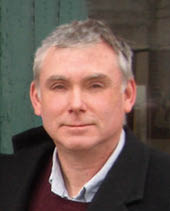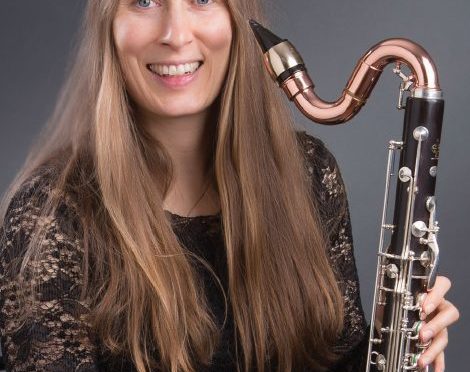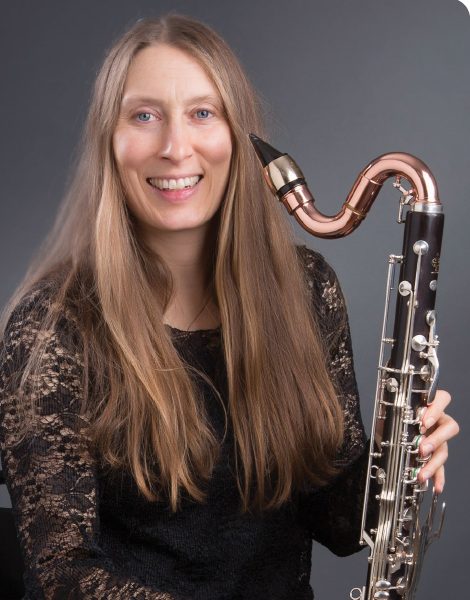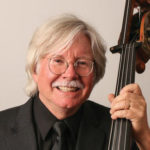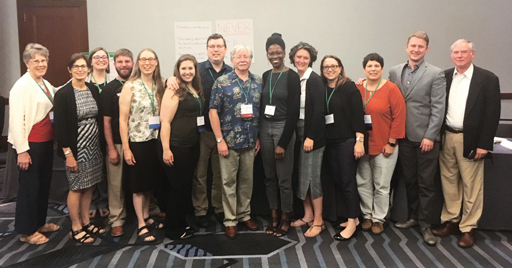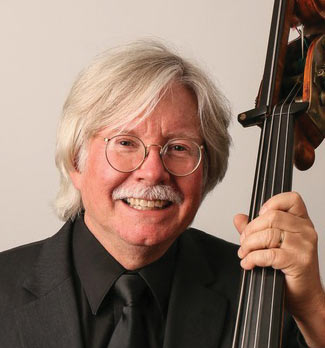by Steve Wade, ROPA President and member of Local 400 (Hartford-New Haven, CT)
The Regional Orchestra Players Association (ROPA) held its 40th conference in Atlanta, July 25-27. By all accounts the event was excellent. Highlights included the first appearance at a conference by then AFM International President-elect Tino Gagliardi and a keynote address by Dr. Michelle Au (D), representative for Georgia District 50.
We had several fine presentations, including talks on the Tax Parity Act and taxes for musicians by ROPA Treasurer Rick Basehore of Locals 40-543 (Baltimore, MD), 45 (Allentown, PA), 135-211 (Reading, PA), 161-710 (Washington, DC), and 269 (Harrisburg, PA). There was a job action panel on success stories from the Minnesota Opera, Fort Wayne Philharmonic, and Opera Philadelphia.
Valerie Trollinger, a Local 135-211 ROPA delegate and adjunct professor of otolaryngology-head and neck surgery at Drexel University College of Medicine, presented “The Musician as Athlete: Performing Artists and Special Considerations for Medical Evaluation, Diagnosis and Care.” In addition, Dan Ross and Kent McVey gave a talk on the Federal Mediation and Conciliation Service. AFM Symphonic Services Division Director Rochelle Skolnick presented “When Orchestras Behave Badly – Using NLRB Processes to Protect Musicians’ Rights.”
I’m especially proud of our resolutions from the conference. We passed resolutions honoring outgoing AFM leadership Ray Hair, Bruce Fife, and Jay Blumenthal, and one remembering Marika Fisher Hoyt. Hoyt was a violist and ROPA delegate from Madison Symphony Orchestra and former member at large on the ROPA Executive Board, who passed away from cancer this year. She was a terrific musician with a wonderful spirit, and we all miss her.
In addition, we voted to support the American Music Fairness Act, the Fair Share for Musicians Campaign, encouraged the use of the Multi-Card Rebate process, AFM investment in organizing, and the preservation of local wage scales. We voted to show solidarity with the striking members of the WGA and SAG-AFTRA.
We also voted to support the Performing Artists Tax Parity Act of 2023. It’s important to note that the biggest problem with the original legislation was that it was not indexed to inflation. The 2023 act is, and with these new parameters, this bill is potentially life changing for a lot of musicians. The ROPA publication Leading Tone has an exhaustive article on it, written by resident spreadsheet magician Rick Basehore.
The ongoing labor action by the Writers Guild of America and SAG-AFTRA is centered around issues that are very much like our own. They are well past the 100-day mark of their strike. We need to continue to support these creative artists in every way we can and look for ways to connect with them. When we talk about beating Keycomp and AI, and other musician replacement technology; residuals from streaming; or the right to be paid at all by the powers that be, we must realize that we need to be proactive to protect our lives and our industry.
One of the best things about these conferences is seeing the strength of the unity in the room. This year, I have felt this a lot from my colleagues on the Players Conference Council: Theater Musicians Association President Heather Boehm; Organization of Canadian Symphony Musicians President Bob Fraser; and Recording Musicians Association President Marc Sazer. I will always be grateful for the chance to know Meredith Snow, departing chair of the International Conference of Symphony and Opera Musicians. She has been a real inspiration, offering her experience and advice without any hesitation so many times. Congratulations to her on a great tenure.
The ROPA Equity, Diversity, and Inclusion (EDI) workgroup is led by Alana Wiesing, principal timpanist of the Tucson Symphony Orchestra/Local 33. We are working to assemble resources that ROPA orchestras can access easily through our website, and we are looking at the tenure process as well. One of our goals is to have someone from every ROPA orchestra in the workgroup. Any musician in a ROPA orchestra can join. Reach out to your ROPA representative if you are interested in taking part.
The Conductor Evaluation Bank that has been jump-started over the last few years has transitioned from a paper system to an online one. This makes it much easier to set up and manage an evaluation. Consequently, we are getting a lot more data in the bank. We have received 131 evaluations since we went online.
When I spoke to our general session, I noted that about half of the delegates in attendance were new, which is a great sign. We want our experienced people to be there, of course, but it’s a sign of real health in our organization that so many new delegates are stepping up. I told them about how overwhelming the experience was for me, when I was new to ROPA so many years ago, and that they should not be afraid to be exactly who they are, musicians dedicated to a better life for all of us through fair wages and better working conditions. ROPA is here to help us help our colleagues. They are among friends, and they should never doubt that what they do makes a difference.


